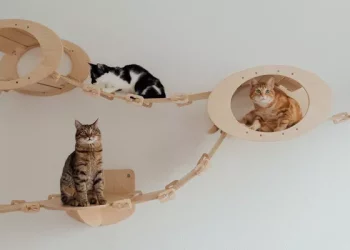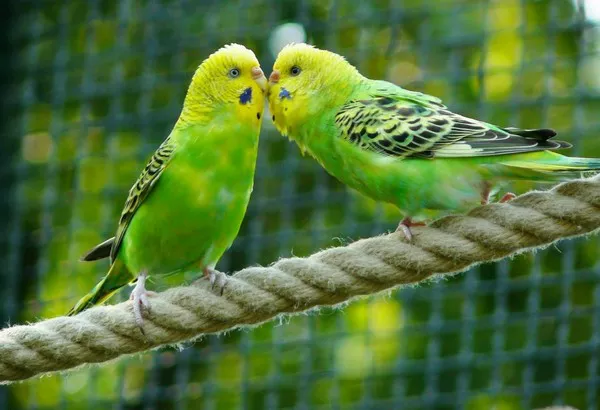Corn snakes, scientifically known as Pantherophis guttatus, are one of the most popular pet snake species in the world. Known for their docile temperament, attractive coloration, and relatively low-maintenance care requirements, corn snakes have become beloved pets for both beginner and experienced reptile owners. However, many new or potential snake owners often wonder: Can corn snakes bond with humans? This question touches on the nature of snake behavior and whether these reptiles, which are often considered distant or aloof compared to mammals, are capable of forming connections with their human caretakers.
In this article, we will explore whether corn snakes can form bonds with humans, looking at their behavior, intelligence, socialization needs, and the way they interact with their human caretakers. By the end, we hope to provide a comprehensive answer that helps you better understand your corn snake and its ability to form connections.
The Nature of Corn Snakes
Before diving into the concept of bonding, it is essential to understand the basic nature of corn snakes. Native to the southeastern United States, corn snakes are non-venomous constrictors that primarily hunt small rodents, birds, and eggs in the wild. As a species, corn snakes are known for their calm demeanor, making them one of the most suitable snakes for captivity.
Physical Characteristics
Corn snakes come in a wide variety of colors and patterns, ranging from the classic red and orange “wild-type” morph to other variations such as albino, anerythristic, and caramel. They typically grow to about 4-6 feet in length and can live up to 20 years in captivity when provided with the proper care.
Behavior in the Wild
In the wild, corn snakes are solitary creatures. Unlike some snake species that may live in groups or have complex social structures, corn snakes are primarily solitary and territorial. They spend most of their time hiding in burrows, under rocks, or in tree branches to avoid predators. Their primary interactions with others are for mating, and they have no social structure akin to what we might find in mammals or birds.
What Does “Bonding” Mean for Snakes?
Before we can discuss whether corn snakes can bond with humans, we need to consider what “bonding” means in the context of snake behavior. Bonding, in the traditional sense, refers to the formation of a deep, reciprocal emotional connection between two individuals, typically based on mutual trust and affection. In mammals, bonding often involves physical closeness, social behaviors like grooming or play, and the establishment of a relationship based on mutual care.
However, snakes do not have the same cognitive or emotional capacity as mammals, so bonding with a human does not mean the same thing as it would for a dog or a cat. For snakes, “bonding” is more about habituation, recognition, and the development of trust over time. This is important because while a snake may not develop affection in the same way a dog does, it can still learn to recognize and tolerate its human handler.
Can Corn Snakes Recognize Humans?
One of the first questions to consider when discussing whether corn snakes can bond with humans is whether they are capable of recognizing individual humans. Research into reptilian cognition and behavior is still evolving, but there is evidence to suggest that snakes, including corn snakes, can recognize and differentiate between individual humans.
Corn snakes are not entirely dependent on sight to recognize their surroundings or their caretakers. They also rely on other senses, including smell and vibrations. Snakes have an advanced Jacobsen’s organ (or vomeronasal organ) that allows them to detect pheromones and chemical signals in their environment. This means they can likely identify their human caretaker by scent.
Over time, a corn snake may come to associate a specific human with feeding or handling experiences. If a particular person consistently provides food, the snake might associate them with the positive experience of being fed, helping to establish recognition and trust.
Evidence of Recognition
Pet owners often report that their corn snakes behave differently when handled by different people. For instance, a corn snake may be more relaxed when picked up by its primary caregiver but may seem more defensive or stressed when handled by someone unfamiliar. This indicates that the snake can recognize its primary human caregiver, though the nature of this recognition is likely linked more to routine and sensory cues than to a deep emotional attachment.
The Role of Habituation in Bonding
Habituation is the process by which an animal becomes accustomed to a particular stimulus or situation over time. Corn snakes, like most reptiles, are creatures of habit. They thrive in stable environments where they can predict their surroundings and interactions. If a corn snake is regularly handled by the same person in a gentle and predictable manner, it may become habituated to that individual’s presence.
This process does not equate to bonding in the emotional sense, but it does signify that the snake is becoming comfortable and trusting of its handler. For example, a corn snake that is gently handled a few times a week may begin to recognize its caretaker’s scent and movements. Over time, it may learn that handling does not pose a threat and may stop exhibiting stress behaviors such as hissing, striking, or attempting to escape.
Building Trust with Your Corn Snake
Building trust with a corn snake requires patience, consistency, and a respectful understanding of the animal’s needs. If you’re hoping to establish a connection with your corn snake, consider the following steps:
Establish a Routine: Corn snakes appreciate a consistent routine, as it helps them feel more secure. Feeding at the same time each week, providing regular environmental maintenance (like substrate changes), and establishing regular handling sessions all help your snake feel at ease.
Start Slowly: If your corn snake is new to you, start with minimal handling. Allow it to acclimate to its new environment for a week or two before attempting to handle it. Once it seems comfortable in its enclosure, begin with short, gentle handling sessions, gradually increasing their duration as the snake becomes more accustomed to your presence.
Use Positive Reinforcement: Offering food at the right time can help build a positive association between you and the act of feeding. When handling your snake, avoid feeding during stressful or overstimulating situations, as this may cause the snake to associate you with fear or stress.
Respect Your Snake’s Boundaries: Just as some snakes enjoy handling more than others, your corn snake may have its own preferences. Some snakes are naturally more tolerant of human interaction, while others may prefer to be left alone. Understanding and respecting your snake’s limits is crucial in developing a trusting relationship.
Can Corn Snakes Show Affection?
Although corn snakes are not affectionate in the way that dogs or cats can be, they can show behaviors that might be interpreted as signs of comfort or trust. Some corn snake owners report that their pets seem to “enjoy” being handled or carried around their home, while others may appear more indifferent.
In some cases, a corn snake might exhibit behaviors such as:
Calmness and relaxation: When being handled, a corn snake that is comfortable with its owner may remain calm and relaxed, coiling gently around the person’s hand or arm without attempting to escape.
Exploration: If allowed to roam in a safe, enclosed space, a corn snake that feels secure in its environment might explore its surroundings in a non-aggressive manner, which can include exploring the person’s body, clothes, or hands.
Following movements: Some owners report that their snakes seem to “follow” them with their eyes or even respond to their movements. This could be an indication that the snake is becoming more familiar with the person.
However, it is essential to keep in mind that these behaviors should not be confused with affection in the way that humans or more social animals like dogs show affection. Corn snakes are not capable of experiencing emotions in the same way humans do, and their behaviors are likely driven by instinct, comfort, and learned associations rather than emotional attachment.
The Importance of Proper Care in Bonding
It is essential to understand that proper care is key to any interaction you may have with your corn snake. Providing an appropriate habitat, including the correct temperature, humidity, hiding spaces, and food, is crucial for the snake’s overall well-being and comfort. A snake that feels stressed, sick, or uncomfortable will be less likely to tolerate human interaction and may become more defensive.
For example, if a corn snake’s habitat is too small, too hot, or too dry, it may become stressed and less likely to respond positively to human interaction. Conversely, a well-cared-for snake will be more likely to be calm and tolerant of regular handling, which could potentially help establish a form of trust.
Conclusion
So, can corn snakes bond with humans? While corn snakes are unlikely to form deep emotional bonds in the same way that mammals do, they are certainly capable of recognizing their human caretakers and becoming accustomed to regular handling. Over time, with consistent, gentle interaction, your corn snake can develop a level of comfort and trust with you. This process is not the same as bonding in the traditional sense, but it does signify a positive, mutually respectful relationship between you and your pet.
Ultimately, understanding and respecting the natural behavior and instincts of your corn snake is crucial for building a positive and healthy relationship. While your corn snake may never greet you like a dog or purr like a cat, it can certainly come to recognize and tolerate your presence, forming a bond based on trust and familiarity. By providing the right care and interacting with your snake in a calm, predictable way, you can create an environment where your corn snake feels safe and secure—helping to foster a relationship that benefits both you and your pet.
Related Topics:























